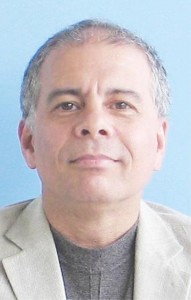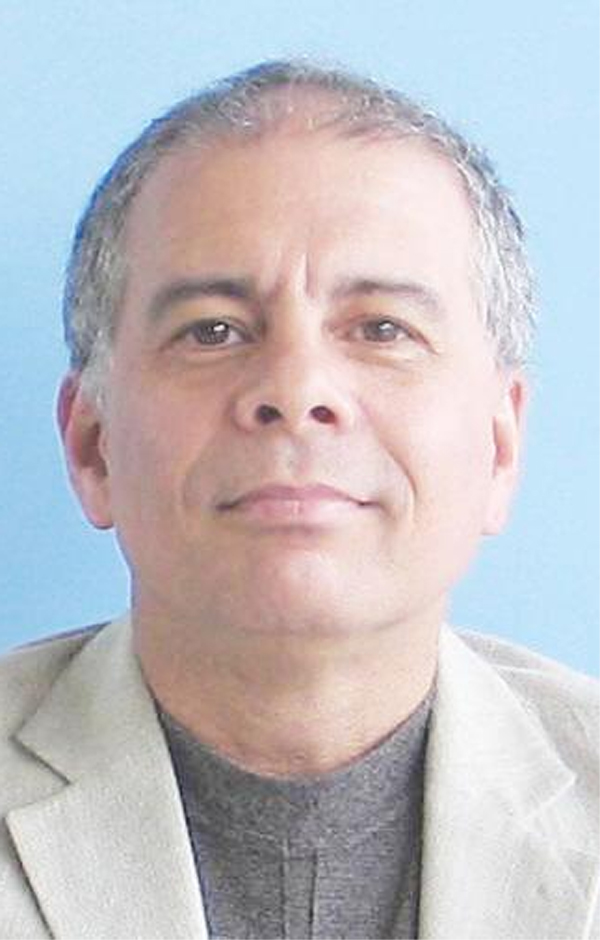-UNAIDS Country Co-ordinator says networking helping
The Guyana Network of People Living with and affected by HIV (G+), which was established some 12 years ago but had to close its doors last year because of various problems, will cease to exist as there is no real “need” for it, UNAIDS Country Representative to Guyana and Suriname, Dr Ruben Del Prado says.

The interim management committee, which was set up last year September after the G+ board members resigned, is continuing to give support to the persons who were receiving help from the organisation, Del Prado said, and “nobody has indicated a need to us that G+ has to be revived.”
When the board was dissolved last year and the interim management committee, headed by UNAIDS, was set up, it had been stated that the organisation would have been restarted from scratch but it would have contained the ‘DNA’ of the original dream of Dussiley Cannings and the now deceased Andre Sobryan when they founded the network 12 years ago.
That dream was for G+ to be a true national network of people living with and affected by the virus and all existing support groups and caregivers from the ten regions. The two had dreamt that the groups would not have competed but would have fought jointly for their rights and agreed on their responsibilities.
In an interview with Stabroek News Del Prado posited that those who were involved with the organisation can achieve the above dream by working along with the organisations that already exist.
“The vision of G+ is there and the G+ members are there, so if they really want to accomplish what they envisaged for G+ they [will] participate in this process [of networking of support groups] as individuals, as the strengthening forces of these support groups, participate, go with us, give talks. That is what G+ is supposed to be. You don’t need a building. You don’t need a board. You don’t need money to do it. You need a heart and love for what you are doing,” Del Prado posited.
According to Del Prado the intervention last year was “not about G+, it was about the people who received support from G+” and UNAIDS had suggested to the organisation that it must cease to exist and that all board members should offer their resignation.
He recalled that it was mid last year they had received information that all funding of the organisation would have come to an end and it would have to close its doors. As a result, he called a meeting with the members of the board.
“In that meeting it became painfully clear at that point and time when the final piece of funding would have come to an end… nobody would be willing to support G+ financially anymore,” he said.
He said the organisation had become one with lots “of internal problems that could not be solved by just going in and trying to solve them. It had been tried many, many times by many, many people.”
It was at that point Del Prado said that UNAIDS took a very “blunt decision” and created a partnership with a number of organisations to take over the reins of G+. Last September UNAIDS in a release had announced that the operations of G+ had been handed over to an interim management team as the organisation could no longer source financing because of mismanagement. The release had said that the seven-member board of directors of G+ resigned at a special members’ meeting and the board handed over all responsibilities to a seven-member Interim Management Team put together by UNAIDS, the François-Xavier Bagnoud Center for Health and Human Rights (FXB), the Guyana Red Cross Society and the Guyana Responsible Parenthood Association (GRPA).
The technical team had been given a period of three months to assess the need for a national network of people living with HIV in Guyana and what the value added, structure and governance of such a network would be.
‘Networking’
According to Del Prado in addition to taking care of those persons who were being supported by organisation, the technical team was also mandated to ensure that the different “support groups worked together; there would be networking something that G+ had never ever managed to do.
“And the third reason to have the interim management team… was to see if with the disappearance of G+ it would be necessary to assist civil society, people in HIV to be maybe rebuild an organistaion, a real civil society organisation.”
He said that investigation by the team found that a large number of persons who were receiving support from G+ were also receiving support from other support groups and as a result, with financial support from UNAIDS, persons who worked with G+ compiled a list of persons who would have “fallen through the cracks” with the closing of G+’s door. Those persons were offered the opportunity to access support from GRPA with the financial support of UNAIDS for the period of three months, a period that comes to an end at the end of this month.
Del Prado said UNAIDS would continue to fund the support scheme for the next two months and then they “must have a strategy to ensure that somebody else takes over this responsibility.” He said at the end of that period he hoped an organisation would come onboard to support those persons.
The UNAIDS country head pointed out that Minister of Health Dr Leslie Ramsammy has made it clear that “we should not create new things but look at the existing support groups and try to support them… to make them the best possible support group,” and as result the team entered into talks with the National AIDS Programme Secretariat (NAPS). He said they have agreed that as a part of “our support through this initiative that we would go and give talks. We would find a number of technical people, professionals who go into those support groups… and talk about adherence, disclosing their status, about nutrition, about living together and positive prevention.” He said they are hoping to bring some of the support groups together and as far as he sees the networking has started already.
“Please be clear UNAIDS and the interim management team are not creating a network, we are improving networking…” He is of the opinion that UNAIDS and its partners, including NAPS, have been successful in the networking of the support groups. But he said there is now need for them to look at the support groups and how they help those in need.
“My definition as the UNAIDS representative in Guyana of a support group… is that a support group for a person living with HIV is a group that tries to get rid of you as soon as possible. This support group must strengthen you, must give you the tools and the instruments so that you do not need the support group. Then you can say I am HIV positive. So what? I do not need a support group. I have my friends and my family. I have my job. I am healthy. I eat well. I go to my doctor… So the support group is to get rid of the people living with HIV in the support group by supporting and strengthening and building the capacity and the competence so that they can live a positive life.”

